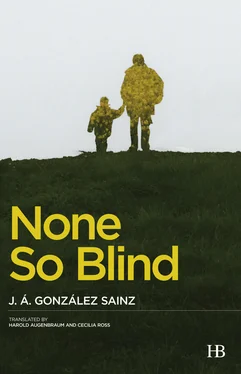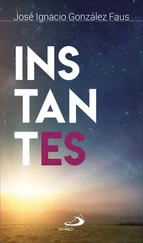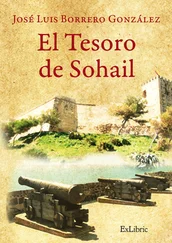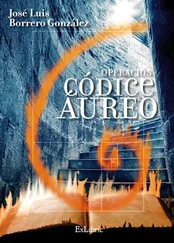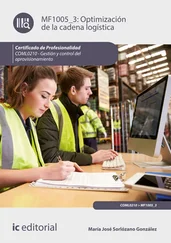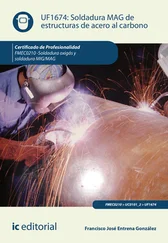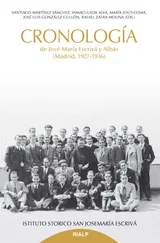With these same words, with these same sentences that he went on shaping, polishing, and perfecting as if trying to make them worthy of emerging from an oracle’s mouth, he went over the scene again and again, like someone reciting a chant. Some moments, it was true that he seemed to his son like an oracle, but other moments he just seemed like a drunk, a man fatally inebriated with guilt and pain, obsessed, perhaps with what he can see better than anyone else or perhaps with the urge to not to see anything more, precisely because he’d seen, better than anyone else, what he’d seen. But little by little, by dint of going over it again and again, his voice was beginning to crack, getting thinner, becoming ever more indistinguishable, inaudible, almost only a murmur, or a tremor.
After several hours, when exhaustion had taken as much of a toll on them as anguish, his son motioned as if to help him up from his chair and take him to bed. But at his son’s first movement, it was he who quickly got up, who pushed back the chair in which he had let himself go, and once on his feet, as if he had reawakened on the way to his room, he again took up his litany. Or the other poor guy — he said — the journalist. He had been in his same old bar having his same old coffee prepared by the same old hands, he’d been breathing the same old air and hearing the same old words and seeing the same old light of that lousy day, and maybe glancing at him, brushing shoulders with him, and then at the exit, that poor man with his newspapers under his arm, and his wife and children waiting for him so they could all go somewhere because it was Sunday, that man steps out the exit and he follows him, right behind, not so close that he notices him or so far that he might get out of range, and as soon as he turns the corner onto the alleyway leading to the man’s home and he sees that no one is coming, that no one is coming up ahead or behind him, that there’s no one to the left or to the right, or down below or, most especially, up above, in the heavens, because there is no God whatsoever for any of these people, unless you count the grotesque ideology that passes for Him, so he goes and readies the gun in his hand, the same gun he had already used to kill the poor man working as a member of the Guardia Civil and would subsequently use to kill the professor, and he quickly lets off two shots, two shots to the back of his neck, two shots in the back, just like that, bang, bang , and the way the man was walking in front of him, with nothing but his newspapers in his hand and his eyes on the road, he didn’t have time to see, even out of the corner of his eye, the brave specimen of a scoundrel who took his life exactly as if he were some sort of supreme judge, this petulant, sickened scoundrel who is my son and who most likely didn’t even open his mouth other than to say take that, suck on this, you fucking hack, or you fucking chalk pusher, or you pansy-ass fucking pig.
Without taking off his shoes, without removing his wool sweater, which still had blotches of dirt and sap from the old cherry tree on it, and without shaking off the droning recitation that came issuing from his mouth like the rising of a river too long stagnant, he got into his bed by himself, without turning on the light or accepting the least bit of help or the slightest gesture of consolation. For a good while still, his son in the room next door could hear the man chant on, that man he’d always known as quiet, always serene, as self-possessed as a tree and as determined as an open road, the man who would often recite those lines of Calderón that his father had taught him a long time ago: “When reason’s dull, the mind depressed,” it went, “he best doth speak who keeps his silence best.”
But after some time, which because he was half-dozing, he couldn’t have said whether it was long or short, he heard him get out of bed and leave his room without making any noise.
He didn’t follow him, he didn’t get up to keep him company or fix him something warm to eat; he knew all too well that he wouldn’t be able to offer him any relief or know how to comfort him, and that only time — solitude and time and the ability to take up his road again and go back to being who he was — could heal his wound, that deep gash in his insides, which is where, if he hoped to ever move on, he would have no other choice but to set about finding himself again, like someone who at first discovers nothing but a pin in the darkness of a room in which he can ascertain neither the dimensions of the space nor how thick the darkness might grow.
From his bed in the next room, he couldn’t figure out what he was doing or where his footsteps were leading, but when suddenly he heard the great, old, solid wood door suddenly close and the bronze knocker rattle softly for a second, he knew that if he gave him something of a head start so that he could walk alone with his thoughts for a stretch, no doubt he could catch up to him somewhere along that same old road he couldn’t help but go along to find himself, as if it were something inseparable from himself, so very himself, in fact, that he couldn’t have gotten along without its company, just as a person can’t get along without his hands or his eyes.
He knew he needed to leave him to his own devices for a bit, that he needed to leave his father alone for a little in the place where he would be sure of finding the something of himself that might have remained if not unspoiled, at least unchangeable at its core, or maybe something — something that might be his world or God or his own insides — that he could listen to or that would speak to him the way things perhaps do, rather than there being only our desire to have something speak to us.
So he figured that if he went out a bit later, in just a few minutes, he could follow him at a distance and run into him at some point or other along the road, maybe still close or maybe a little farther away from the house, but in any case walking somewhere along one of the bends in the trail. Maybe beyond the old abandoned mill, where the asphalt lane turned into a packed-earth road, or afterward, when the road turned into a bridle trail, or perhaps when the mighty mass of Pedralén came into view, or maybe even alongside the stone cross instead, directly below its highest point, beneath the circular flights of the Egyptian vultures a good part of the year, where his father’s name, which was also his own as well as theirs, had been chiseled into the base. Although it might also be that if he gave him a bigger head start, he would come upon him a bit farther along, even, where the yellowish leaves of the black poplars would project onto his questions there in the early morning a feeble, almost whispered light, entirely insufficient, but at the same time primordial. Whatever pace he might walk at, there was no doubt he would come upon him at one spot or another, and when he did, he would surely find him much more collected, more as he was, with much more himself in him than the evening before. Look, Felipe, look and listen all around you, son — he seemed to be hearing — mold yourself to it, to all of it, but do it without ever setting aside your sense of wonder, that which, as incomprehensible as it may seem, embraces all things at the same time as it frees you from everything.
On their way back — he had found him alongside the stone cross, directly below the highest point of the promontory — they agreed that after lunch they would undertake a trip to Madrid to try to see Juanjo in jail as soon as possible; to see Potote, his son said, and it instantly seemed that he regretted having done so. His father would spend that night and any other nights that were necessary in the room he boarded at while at school, and he would sleep on the dining room couch, and most likely, assuming they didn’t hit any snags, he would be able to see him right away.
Читать дальше
